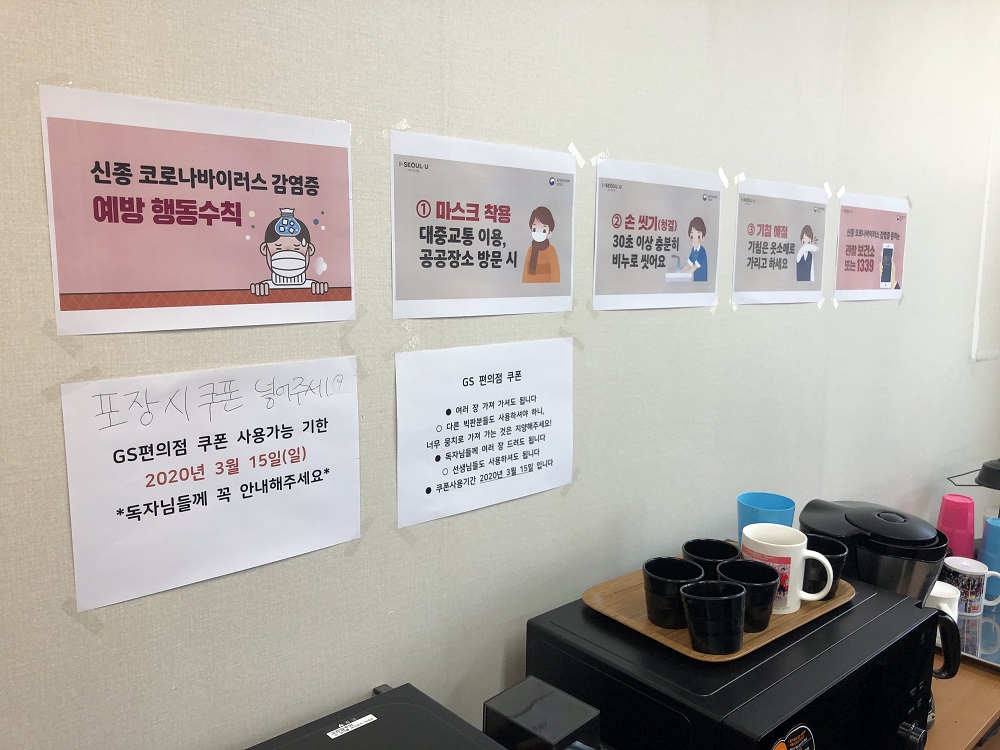As the novel coronavirus has spread from China to other parts of the world, inevitably it is impacting the lives and work of street paper vendors.
Current numbers (at the time of writing – and the situation is changing too fast to keep up with) suggest that 80,000 people have been affected by the virus – now being referred to as Covid-19 – in at least 30 countries since the outbreak began in the Chinese city of Wuhan, with deaths being registered in Japan (four), Korea (eight), Taiwan (one), and now Italy (seven), all nations with a street paper representative.
Japan has been the worst hit outside China with 850 cases (the majority of which came on a stranded cruise liner at Yokohama) and four confirmed deaths.
INSP spoke to Sayuri Kusama, an editor at The Big Issue Japan, about how vendors are reacting to the situation and what precautions management at the street paper is taking to assist vendors. The organisation’s monthly vendor meeting had just taken place, and the virus was top of the agenda.
![An information leaflet given out to Big Issue Japan vendors. [Courtesy of Big Issue Japan]](https://hub.insp.ngo/wp-content/uploads/2020/02/INSP_Coronavirus-and-vendors_8.jpg)
“Our vendor support team has handed out information to our vendors about the best measures to protect yourself against the virus,” said Kusama. “Fortunately, we have a large stock of masks which were donated a few years ago, and more were given to us by our street paper colleagues in Korea at the 2020 Asia-Pacific meeting.”
There has been panic as Japanese media has reported a scramble to meet the demand for face masks in the country, with many stockists running low. While the wearing of masks offers some protection, properly washing hands and covering your face when coughing and sneezing is advised as a better way to prevent the spread of the virus. “There is a big problem with masks being sold out or running low in drugstores and supermarkets here, but so far we can cope,” said Kusama.

But the question of whether vendors should wear masks at all when selling the magazine has also proved to be a stumbling block.
“It’s a complicated matter,” said Big Issue Japan vendor Mr Yamada. “When you wear a mask, some people feel anxious and cautious, believing the vendor to be sick, despite the mask being there for protection in the first place. If you don’t have it, some will question why the vendor isn’t wearing it.”
Kusama said that vendors are being supported as best as possible to keep good hygiene using hand sanitiser and to wear masks.
[#하이어뮤직 KF94 마스크 5,000장 기부]
하이어뮤직에서 #코로나19 가 전국적으로 확산됨에 따라 #KF94 패션 #마스크 제작 업체인 #게이즈샵(GAZESHOP)과 함께 마스크 구매가 어려운 취약계층인 홈리스 판매원들을 위해 마스크를 전달해주셨습니다 👏👏#빅이슈 #빅이슈코리아 #빅이슈잡지 pic.twitter.com/jKJylovnwA
— 빅이슈코리아 (@bigissuekorea) February 21, 2020
The fear of the virus is affecting the potential to reach customers too, though vendors remain resiliently at their pitches.
Vendor Mr Yoshitomi, who sells in an office district nearby notable Osaka tourist landmarks, said: “There are clearly not as many people around during the daytime and, generally, people are increasingly likely to avoid crowded areas. I can already see it affecting sales.”
The Japanese Ministry for Health, Labour and Welfare (MHLW) has recommended that individuals who can work remotely do not come into their offices. With fewer people commuting and leaving their homes, footfall is lower. Kusama confirmed that a clear drop in sales has not yet been indicated. Taking the MHLW’s advice on re-evaluating the necessity of holding public events, The Big Issue Japan has postponed two large events – a live music festival and a symposium on gambling addiction – it had co-organised and were set to go ahead next month.

Due to the proximity to the location of the initial outbreak, countries in East Asia have, of course, been most affected, where INSP members The Big Issue Korea and The Big Issue Taiwan are located.
The Big Issue Korea has teamed with a high profile music label and received a donation of 5,000 useful, and fashionable (in East Asia, such items are far more common place than in the West), face masks to distribute to vendors.
The Seoul-based street paper has also provided its readers, via social media, with an update on the health of vendors and staff, and assured that all precautions and necessary safety measures are in place, to ease concerns about continuing to interact with vendors and buying the magazine.

With news that cases, and deaths, have been confirmed in Italy, Milan-based street paper Scarp de’ tenis is now also dealing with restrictions on movement and travel set by local authorities in the Lombardy region. While Milan itself isn’t under lockdown, 11 surrounding towns are shut-off and 50,000 people are quarantined, according to reports.
Marta Zanella, who works in communications and social media at Scarp de’ tenis, updated INSP about the situation in her part of the world.
“So far, all Scarp de’ tenis staff and vendors remain well,” said Zanella. “But our vendors mainly sell out of churches, and this past Sunday in Lombardy, Veneto and Piedmont [three regions in the north of Italy], fewer people attended Mass than is usual. However, our vendors sold more or less the same number of magazines as they would expect.
“The problem is that all church services in Lombardy will be suspended next weekend, so vendors may not be able to return there to sell until 7 March. So, we’re discussing how to approach this, and ensure they still have a chance to sell their street papers. We’re increasing the number of their pitches located on streets and in supermarkets (where people are continuing to go). Things seem to be changing rapidly though.”
The World Health Organisation has so far stopped short of calling the outbreak a pandemic, but has declared it a public health emergency.
There have been 13 recorded cases, but no fatalities, in the UK, where INSP and street papers The Big Issue (UK) and Big Issue North are based.
INSP will be updating this article with information from other affected parts of the network as and when it receives it.
INSP members can download this story from the News Service here.




















